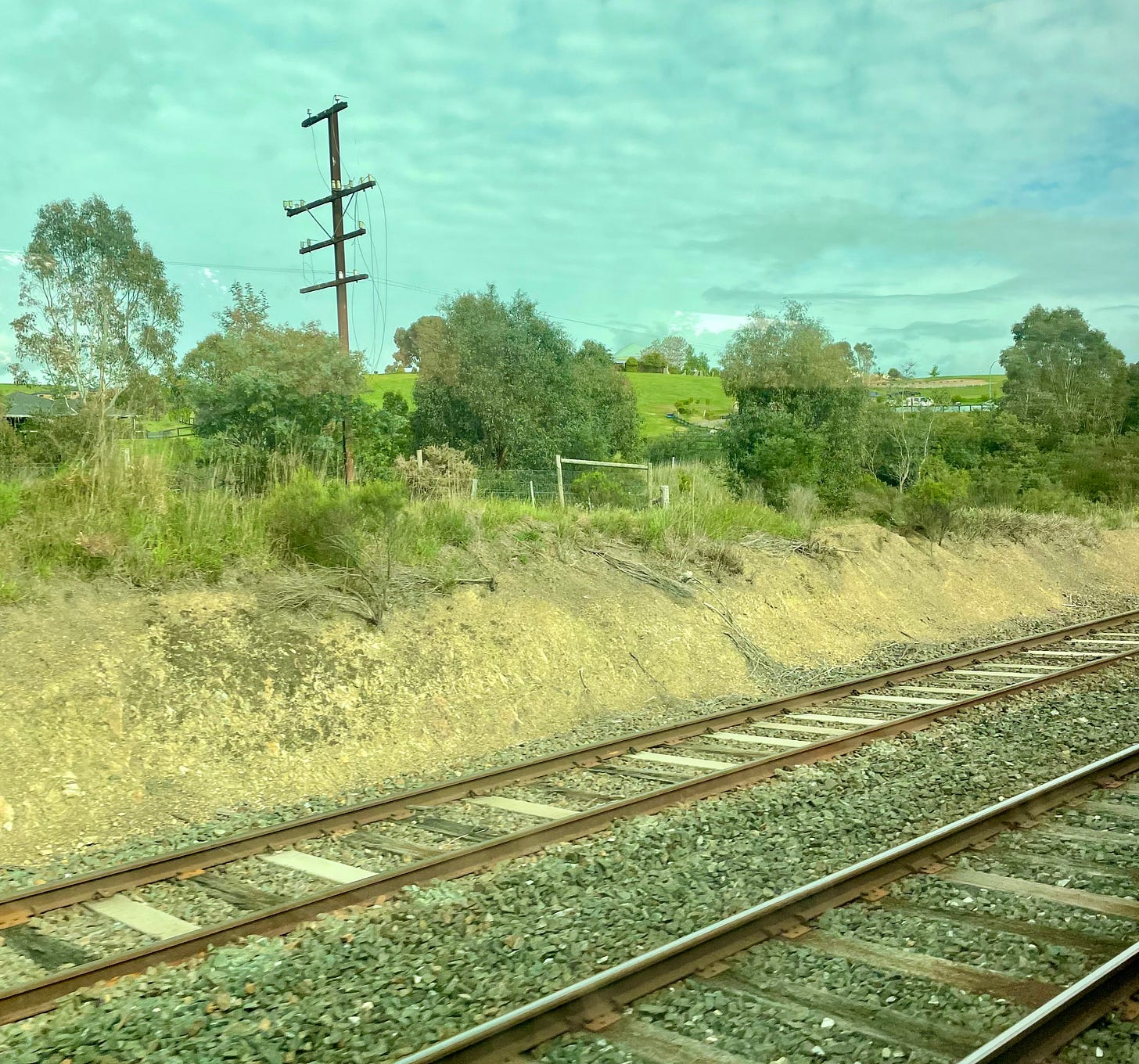The tricky question of accommodation
How can we get this right? Avoid tourism leakage, don't sabotage local rent prices, don't get ripped off - it's not straightforward!
My 14-year-old son and I have a trip planned for east coast Australia soon. When I say “planned”, I mean that I have flights, because I got them in a sale, and we have a couple of non-negotiable arrangements, like a friend’s birthday party in Sydney and an exhibition I absolutely have to see in Melbourne; I’ve also booked our train journeys between Sydney and Canberra, and Canberra and Melbourne (which annoyingly includes a section of bus, because long-distance train travel in Australia is really deplorable).

However, a significantly missing chunk is that we need some places to lay our heads each night. As a thoughtful traveller, there are so many factors that run through my head when I’m trying to decide on the best accommodation:
Will the money I spend stay in the local community? This bothers me more in the Global South, where there are so many hotels and resorts owned by foreign conglomerates, and I might spend money that has barely any trickle-down into the local economy.
Will I be displacing local people? In some cities, especially those with significant numbers of tourists, vacation rental programs like Airbnb have pushed up local rent prices so that people who have previously lived quite happily in these cities permanently can no longer afford rent. (Barcelona, as an example of the consequences of this, is set to ban short-term rentals from 2028.) But, there are some short-term rentals on Airbnb and similar platforms that aren’t such an issue - in Denmark, for example, we stayed in an apartment in Copenhagen that the owner rented out every time she went to the country to stay with her parents, and in Iceland, we stayed in a little grass-roofed hut on the the land of an ex-Icelandair pilot (next to his air strip and hangar!) which would never have been suitable for long-term accommodation.
Will I be in that awkward position of feeling I am being waited on hand and foot … this is more a personal thing, but I don’t cope well with “luxury” treatment; I don’t want people to get paid to be nice to me, I don’t like extra housekeeping services, have never had and hopefully will never have a personal butler, and so on. I think it’s an egalitarian Aussie thing - I don’t want anyone to feel inferior to me, especially for zero reason other than I’m the tourist paying money and they’re an employee. It makes me feel incredibly uncomfortable.
Will I, nonetheless, be staying somewhere that is neat and clean, is convenient (especially to public transport), is aesthetically pleasing, and hopefully is also functioning in a reasonably sustainable fashion, both in terms of environmental impact and sustaining the people and staff involved?
You can see why I’m having trouble with this!
My accommodation booking thought process
I’ve been thinking more about this than usual after putting together a podcast episode about staying in hostels. If you haven’t listened, it’s a great reminder of the value of them (along with the obligatory cautionary tale!), and it’s also good to remember that they really are for all ages: many hostels include private rooms or small dorms, and are definitely not just “youth” hostels any more.
Obviously, if more people are fitting into a smaller space, as is generally the case in a hostel, then that’s already helping create a smaller environmental (and probably societal) footprint.
What’s smaller than a hostel bunk? A bed in a capsule hotel! A couple of years ago I stayed in two capsule hotels within a couple of days, one in the airport in Kuala Lumpur and the second being a brilliant one in Tokyo - pictured below.
While some of my friends told me it looked like a scary hospital visit, I found this stay really comfortable, very affordable for Tokyo, and something I’d absolutely repeat; the only tricky part was that given the close quarters, talking was banned, so my friend Catherine and I had to resort to texting each other from neighbouring capsules to continue our conversation.
Another way to minimise the impact of your accommodation when you travel, if you’re lucky enough to be able to do this, is to stay with friends. We’ll be doing that for parts of this trip and I’m very lucky to have lots of friends in places all over the world who’d be happy to have me, and vice versa. I also have friends who do a lot of house-sitting to travel, but the downside is that often requires a lot of flexibility to be able to fit the calendar of the house owners.
So, where am I at in this accommodation booking process? At the time of writing, I have a dozen or so tabs open, having identified a few likely places in one of the mainstream booking websites, and opened new tabs to go direct to the hotel websites themselves to find out more about them. I’m looking for non-chain, usually smaller places, hopefully owned by local people, and ideally, because who wants to be in a generic room that could be anywhere in the world, have some kind of character to them. In my perfect world I wouldn’t book until the day before but there are various events and festivals coinciding with our stay so I’ll be locking something in before we go; last year in England and Wales, though, we just followed our noses for much of that trip and found cute, small hotels on the day or a couple of days prior.
Is it too hard to be a thoughtful traveller?
When I put all my thoughts on a screen like this, it actually sounds quite an exhausting process. I imagine some people just want to tell a travel agent to make a booking and not think about it.
But I find the process of being thoughtful about where I stay quite a soothing one, if I’m honest! My requirements are quite basic - I don’t need or want flashy accommodation - and I just like to feel I’m making a more thoughtful choice. Every extra bit of thinking is helpful, but I also don’t beat myself up if I don’t have the time or opportunity to find the “perfect” thoughtful accommodation. We’re all just doing our best with the time and resources available to us!
What about you? What kind of things are important for you when booking accommodation?






I try to balance the being thoughtful part with not being too exhausting part. I want to avoid leakage as much as possible but if I'm doing a whole bunch of planning in a row, I confess not every hotel I book is looked at super closely. I do try and rent Airbnbs that are owned by locals and definitely try and avoid places like Barcelona.
Regarding being treated special, I, too, hate that but someone did point out something interesting to me: when you are in a country where that is more common, by abstaining from that system -- i.e., carrying your own bags, which I always want to do because I hate being fussed over -- deprives someone of their tips and could eventually eliminate that job.
My way of dealing with that, is being incredibly grateful, incredibly respectful -- thank you very much, sir! and yes, please, ma'am, my room is ready to be made up -- and by tipping generously.
I wish the world were different and want to affect change where I can. But there is only so much to be done.
It's complicated!
I hear what you're saying.
I have an upcoming holiday in Italy and Malta.
I've found a small, locally owned, reasonably priced hotel in Naples, with a cafe and restaurant, also locally owned nearby, so I'm happy that I'm supporting local business, hopefully of the right sort.
Valletta in Malta was a very different story. Trying to find available central accommodation (booking 3 months out) that seemed as though it was locally owned, wasn't thousands of dollars for a 4 night stay, that wasn't seriously dodgy, was a task and a half. I've ended up going with an apartment but its not locally owned. Sometimes its hard to get all your travel ethics right and you just have to do the best you can.